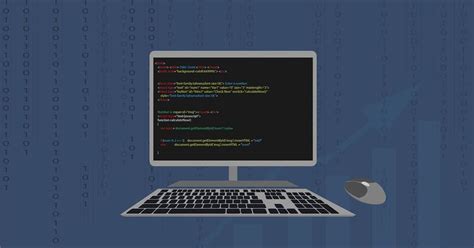Choosing the right educational path is crucial for lifelong learning and professional development. Private schools offer unique advantages, from personalized learning experiences to robust support systems that foster both personal and professional growth. This article explores why private schools are an excellent choice for adults seeking to advance their careers or expand their knowledge. We’ll delve into the qualities that make private schools stand out, examine top options, and provide insights into evaluating programs to ensure they align with your educational goals and needs. Discover how private schools can adapt to changing educational landscapes and enhance your learning journey.
Explore this topic thoroughly with gameshoek.com
1. Why Choose Private Schools for Lifelong Learning?
Private schools offer an array of benefits that make them an ideal choice for lifelong learning. One of the primary advantages is their ability to provide a tailored educational experience. Unlike public institutions, private schools often have smaller class sizes, allowing for more individualized attention and personalized instruction. This environment fosters a deeper understanding of subjects and encourages active participation.
Additionally, private schools typically have more resources at their disposal. These can include state-of-the-art facilities, a wide range of extracurricular activities, and access to advanced technology. Such resources enhance the learning experience and provide opportunities for students to explore various fields and interests.
Moreover, private schools emphasize a holistic approach to education. They often incorporate a well-rounded curriculum that includes not only academic subjects but also focuses on personal development, leadership skills, and ethical values. This comprehensive approach prepares students for the complexities of the modern world, equipping them with the skills necessary for both personal and professional success.
Choosing a private school for lifelong learning can lead to a more fulfilling and effective educational journey.

2. How Private Schools Support Professional Growth
Private schools are instrumental in supporting professional growth by offering specialized programs and resources tailored to individual career goals. These institutions often provide a curriculum that goes beyond traditional academic subjects, incorporating professional development courses, leadership training, and practical skills workshops. This ensures that students are well-prepared for the demands of the modern workplace.
Additionally, private schools maintain strong connections with industry professionals and local businesses. These partnerships can lead to valuable networking opportunities, internships, and job placements, giving students a significant advantage in their career pursuits. Mentorship programs, where experienced professionals guide and support students, are also common in private schools, fostering personal and professional growth.
The emphasis on smaller class sizes allows for more personalized career guidance and support. Teachers and career advisors can work closely with students to identify their strengths, interests, and goals, helping them to chart a clear and effective career path. This individualized approach ensures that students are equipped with the skills and knowledge needed to thrive professionally.

3. What to Look for in Private Schools
When considering private schools for lifelong learning, several key factors should guide your decision. First, evaluate the curriculum offered. Look for a school that provides a comprehensive and well-rounded education, including courses that align with your professional goals and personal interests. Ensure the school emphasizes both academic excellence and practical skills, preparing you for real-world challenges.
Class size is another crucial consideration. Smaller class sizes typically mean more personalized attention and a greater opportunity for meaningful interaction with instructors. This can significantly enhance your learning experience and ensure that you receive the support you need to succeed.
Resources and facilities are also important. A well-equipped private school with advanced technology, modern classrooms, and extensive libraries can offer a richer educational experience. Additionally, investigate the availability of extracurricular activities and professional development programs, as these can provide valuable opportunities for growth and networking.
Accreditation and reputation should not be overlooked. Research the school’s accreditation status and seek out reviews or testimonials from current and former students. A school with a strong reputation is more likely to provide a high-quality education and support system.
Finally, consider the school’s culture and values. Ensure they align with your own beliefs and educational goals. A supportive and nurturing environment can greatly enhance your educational journey, fostering both personal and professional development.

4. Why Private Schools May Be a Better Fit for Your Educational Goals
Private schools may be a better fit for your educational goals due to their unique ability to tailor the learning experience to individual needs. Unlike public institutions, private schools often have the flexibility to design specialized programs that align closely with your career aspirations and personal interests. This customization ensures that your education is directly relevant to your goals.
Another advantage is the emphasis on holistic development. Private schools not only focus on academic excellence but also prioritize the development of critical soft skills such as leadership, communication, and problem-solving. This comprehensive approach prepares you to navigate complex professional landscapes effectively.
The smaller class sizes typical of private schools facilitate more personalized instruction and meaningful interactions with educators. This allows for a deeper understanding of the material and the opportunity to build strong relationships with teachers who can provide valuable mentorship and guidance.
Additionally, private schools often have robust support systems, including career counseling and networking opportunities. These resources can be instrumental in helping you advance in your professional journey. The connections made through these networks can open doors to internships, job placements, and collaborations that might not be as accessible in larger, less personalized educational settings.
Overall, the focused, individualized, and supportive environment of private schools can significantly enhance your educational experience, making them a superior choice for achieving your specific goals.

5. How Private Schools Adapt to Changing Educational Needs
Private schools are adept at adapting to changing educational needs, ensuring that their students remain competitive and well-prepared for future challenges. One way they achieve this is through the continuous updating of their curricula to reflect the latest advancements and trends in various fields. By staying current with industry developments, private schools can offer relevant and up-to-date education.
Additionally, private schools often integrate technology into their teaching methods. This includes using advanced tools such as interactive smartboards, online learning platforms, and virtual reality simulations. Such technologies not only enhance the learning experience but also prepare students for a technologically-driven world.
Private schools also tend to be more flexible in their approach to education, allowing for innovative teaching methods and personalized learning plans. This adaptability helps meet the diverse needs of students, whether they require accelerated learning opportunities or additional support in certain areas.
Furthermore, private schools frequently offer professional development for their educators, ensuring that teachers are equipped with the latest knowledge and skills to deliver high-quality education. This commitment to continuous improvement helps maintain a high standard of teaching.
Overall, the ability of private schools to swiftly adapt to changing educational needs ensures that students receive a relevant, dynamic, and forward-thinking education that prepares them for future success.

6. What Are the Top Private Schools for Lifelong Learning?
Several private schools stand out as top choices for lifelong learning, offering exceptional programs and resources to support adult education and professional development. One such institution is Stanford Online High School, renowned for its rigorous curriculum and personalized learning plans tailored to individual goals. With a focus on critical thinking and problem-solving, Stanford provides a robust foundation for both personal and professional growth.
Harvard Extension School is another excellent option, offering a wide range of courses designed for adult learners. With flexible online and on-campus options, Harvard Extension caters to diverse learning needs and schedules, making it an ideal choice for busy professionals seeking to advance their education.
Phillips Academy’s Andover Institute offers adult education programs that emphasize leadership, innovation, and global perspectives. Their programs are designed to foster lifelong learning through a combination of academic rigor and real-world application.
Additionally, The School of The New York Times offers courses that blend journalism, writing, and critical thinking, providing a unique approach to lifelong learning. These programs are particularly beneficial for those looking to enhance their communication skills and understanding of current affairs.
These top private schools exemplify the best in lifelong learning, providing the resources, flexibility, and expertise needed to support ongoing personal and professional development.

7. Why Private School Networks Can Enhance Your Learning Experience
Private school networks can significantly enhance your learning experience by providing access to a broader array of resources, opportunities, and support systems. One of the primary benefits of being part of a private school network is the ability to connect with a diverse community of educators, professionals, and peers. These connections can facilitate valuable networking opportunities, mentorship, and collaborative projects that might not be as readily available in isolated educational settings.
Additionally, private school networks often offer shared resources and facilities among member schools. This means that students may have access to advanced technology, specialized workshops, and extracurricular activities across multiple institutions, enriching their educational experience. Networking within these groups can lead to unique learning opportunities such as cross-school seminars, conferences, and joint programs that expand knowledge and skills.
Moreover, private school networks typically emphasize continuous improvement and innovation. Being part of such a network allows students to benefit from the collective expertise and best practices of multiple institutions, ensuring they receive a high-quality and forward-thinking education.
Overall, private school networks enhance the learning experience by fostering a collaborative environment that broadens educational opportunities, supports professional growth, and provides access to a wide range of resources and expertise.

8. How to Evaluate Private School Programs for Professional Development
Evaluating private school programs for professional development requires a thorough assessment of several key factors. Start by examining the curriculum and course offerings to ensure they align with your career goals and interests. Look for programs that provide relevant, practical skills and knowledge applicable to your professional field.
Consider the credentials and experience of the instructors. Effective professional development programs are led by educators with substantial industry experience and expertise, as they can offer valuable insights and real-world perspectives.
Assess the support services available, such as career counseling, mentorship opportunities, and networking events. These resources can significantly enhance your professional growth by providing guidance and connections within your industry.
Review the flexibility of the program. Many adult learners have busy schedules, so programs offering online or part-time options can be advantageous. Ensure the program accommodates your personal and professional commitments while still delivering comprehensive training.
Lastly, check for reviews or testimonials from past participants. Their feedback can provide insights into the program’s effectiveness and how well it supports career advancement. By carefully evaluating these aspects, you can select a private school program that best supports your professional development needs.

9. What Are the Cost and Investment Considerations for Private School Education?
When considering private school education for lifelong learning, it is crucial to evaluate the cost and investment implications thoroughly. Private school tuition can vary widely based on the institution, location, and program offerings. Typically, private schools charge higher tuition fees compared to public institutions due to their enhanced resources, smaller class sizes, and specialized programs. Understanding these costs upfront helps in making an informed decision.
In addition to tuition, consider other potential expenses such as registration fees, materials, and technology costs. Some programs may also include additional costs for extracurricular activities, workshops, or certification exams. It’s important to factor these into your budget to avoid any surprises.
Financial aid and scholarship opportunities can sometimes offset these costs. Research whether the private school offers financial assistance or payment plans that can make the investment more manageable. Some institutions provide scholarships based on merit or need, which can significantly reduce the financial burden.
Evaluate the long-term value of the education provided. Consider the potential return on investment by assessing how the program enhances your career prospects, earning potential, and professional growth. A well-chosen private school program can lead to substantial benefits, making the cost an investment in your future success. Balancing these considerations will help ensure that you make a financially sound decision that aligns with your educational and professional goals.

In conclusion, private schools offer exceptional opportunities for lifelong learning and professional growth through personalized education, specialized programs, and strong support systems. By carefully evaluating the curriculum, resources, and costs, you can find a private school that aligns with your educational and career goals. Investing in a private school education can yield significant long-term benefits, enhancing both personal development and professional advancement. Make an informed choice to unlock your full potential.
gameshoek.com
